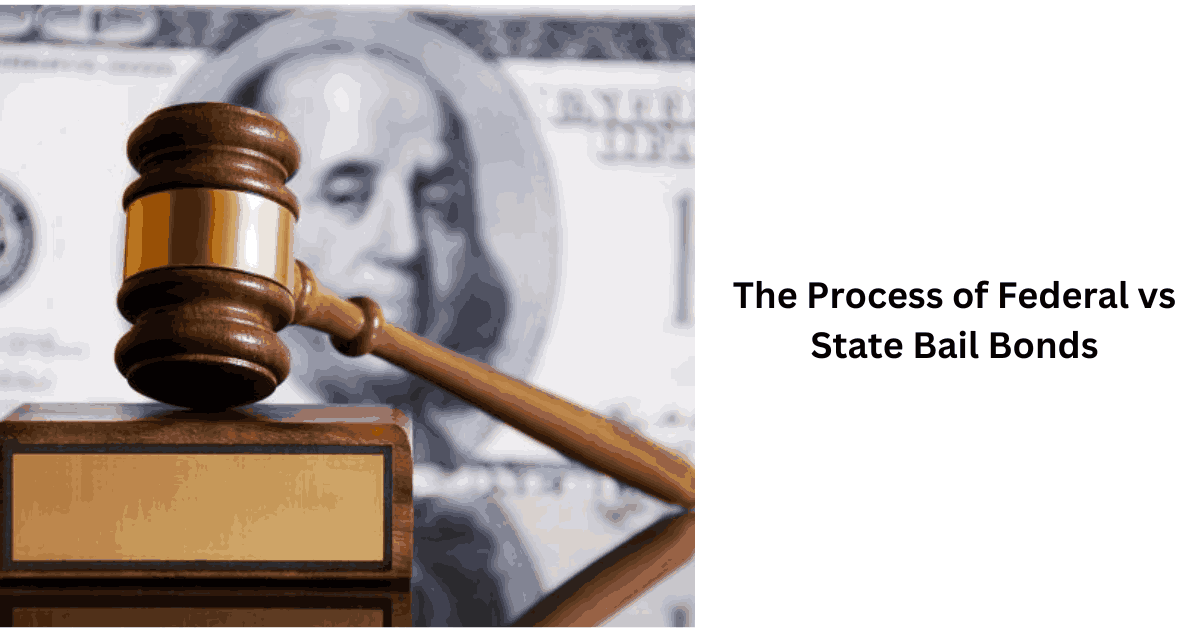If your loved one is facing state or federal charges, you can get them released on bail as they await trial.
Before posting bail, consult with a bail bondsman to gain a better understanding of the legal processes and your financial obligations.
Here’s more information about the differences between federal and state bail bond processes:
Table of Contents
State Bail Bonds
State bail bonds are issued in local courts to guarantee an individual’s court appearance. For your loved one to be released on state bail, they must remain in custody until the judge completes arraignment. During arraignment, the judge announces all charges against the defendant.
The judge will set the bail amount depending on the type and severity of the defendant’s criminal charges. They use a standardized bail schedule to determine the bail amount for each crime. A judge can deny the defendant bail if they’re determined to be a threat to the public or a flight risk.
Once granted bail, the accused may contact a loved one to post the bail for them. If you can’t raise the set amount for your loved one, you can cosign a bail bond with a bail bond agency to provide the required funds.
A bail bondsman will assess your qualifications for a bail bond by evaluating your relation to the defendant and your ability to pay the service fee. They also assess the defendant’s possibility of failing to appear in court to determine the case’s risk.
After this evaluation, the bond agency posts the bail bond and charges the cosigner the service fee. This fee is usually 10% of the bail amount.
After being released on bail, your loved one must attend all court hearings. In these hearings, the judge will make a decision about their case. Once the court reaches a verdict, they refund the bail money to the bondsman, regardless of the case’s outcome.
Failure to attend these court hearings can result in a warrant for the defendant’s arrest. As the cosigner of the bail bond, you’ll become financially responsible for paying the entire bail amount if the defendant doesn’t attend their scheduled court dates.
Federal Bail Bonds
Federal bonds are only used in cases where the accused is charged with federal crimes. Unlike state bail, federal bail is regulated by the federal government and issued through federal courts.
If an individual is arrested on federal charges, they must remain in custody while they wait for their first court appearance. A pretrial service officer interviews the defendant to obtain information about their personal background, criminal history, and finances.
With this information, the officer compiles a report and submits it to the court, recommending pretrial release or detention.
The judge relies heavily on the pretrial service officer’s report to determine whether the accused should be released on bail. After assessing the report, the judge may grant a federal bond if the accused is not seen as a danger to their community or a flight risk.
Federal courts accept two types of bail bonds: signature and property. In a signature bond, the defendant signs a document promising to attend all court hearings. Because the signature is the bond, the court doesn’t need upfront payment to release the defendant.
A property bail bond uses tangible property, such as real estate or vehicles, as collateral. Federal courts can grant a property bond if the accused commits more serious criminal offenses. Such crimes include money laundering, fraud, counterfeiting, and arson.
A bail bondsman can help a defendant’s family members or friends prepare and post a property bond. After the release on federal bond, the defendant awaits trial under the supervision of a pretrial services department. If the accused fails to attend their court hearings, the judge imposes a fine and issues a warrant for arrest.
Choose a Trusted Bail Bondsman
If your loved one has been arrested and is facing criminal charges, the court may grant a bail amount. Individuals facing state or federal charges have the ability to be released before trial when this bail is paid.
A reliable bail bond provider can help you navigate the legal system and bail bond process to post the bond and get your loved one home. Contact a trusted bail bondsman today to learn more about the benefits of their financial assistance.
